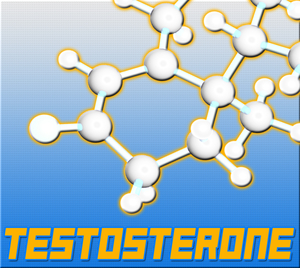Introduction
Testosterone propionate, a synthetic form of the male hormone testosterone, has been utilized in medical treatments for various conditions, including hypogonadism and delayed puberty. Its use, however, raises significant questions about its long-term effects on the endocrine system and overall hormonal balance in American males. This article delves into the complexities of testosterone propionate's influence on endocrine health, exploring its potential benefits and risks, and providing insights into its management in clinical settings.
The Role of Testosterone Propionate in Medical Treatment
Testosterone propionate is administered to address conditions where natural testosterone levels are insufficient. It plays a crucial role in promoting the development of male secondary sexual characteristics and maintaining muscle mass, bone density, and overall vitality. In the context of American healthcare, where lifestyle and environmental factors can impact hormonal health, the use of testosterone propionate has become increasingly prevalent. It is essential, however, to understand its effects on the endocrine system to ensure safe and effective treatment.
Effects on Hormonal Balance
The administration of testosterone propionate can significantly alter the delicate balance of hormones within the body. While it effectively raises testosterone levels, it can also lead to the suppression of the body's natural production of the hormone. This suppression can result in a dependency on exogenous testosterone, potentially leading to a condition known as hypogonadotropic hypogonadism. American males using testosterone propionate must be monitored closely to manage this risk and maintain hormonal equilibrium.
Potential for Endocrine Disorders
The use of testosterone propionate is not without its risks, particularly concerning the development of endocrine disorders. Prolonged use can lead to imbalances in other hormones, such as estrogen, which can contribute to conditions like gynecomastia and increased risk of cardiovascular disease. Additionally, the suppression of the hypothalamic-pituitary-gonadal axis can have long-term implications for fertility and overall endocrine health. Clinicians must weigh these risks against the benefits when prescribing testosterone propionate to American males.
Managing Testosterone Propionate Use
Effective management of testosterone propionate involves regular monitoring of hormone levels and symptoms. American males on this therapy should undergo periodic assessments to evaluate their testosterone levels, liver function, and hematocrit. Adjustments to dosage or cessation of therapy may be necessary to prevent adverse effects on the endocrine system. Moreover, lifestyle interventions, such as diet and exercise, can complement medical treatment and help maintain hormonal health.
Future Directions in Research
As the use of testosterone propionate continues to evolve, ongoing research is crucial to better understand its long-term effects on the endocrine system. Studies focusing on the impact of testosterone propionate on various aspects of health, including cardiovascular and metabolic function, will provide valuable insights. Additionally, research into alternative therapies and natural methods to boost testosterone levels could offer safer options for American males seeking to improve their hormonal health.
Conclusion
Testosterone propionate plays a vital role in the treatment of certain medical conditions in American males, but its use must be approached with caution due to its potential impact on the endocrine system. By understanding its effects on hormonal balance and the risk of endocrine disorders, healthcare providers can better manage its use and minimize adverse outcomes. As research progresses, it is hoped that more refined treatment protocols and alternative therapies will emerge, ensuring the health and well-being of American males navigating the complexities of hormonal health.
Contact Us Today For A Free Consultation

- Testosterone Propionate: Enhancing Male Health and Managing Hormonal Imbalances in American Men [Last Updated On: March 1st, 2025] [Originally Added On: March 1st, 2025]
- Testosterone Propionate's Impact on Sleep Quality in American Males: A Therapeutic Overview [Last Updated On: March 18th, 2025] [Originally Added On: March 18th, 2025]
- Testosterone Propionate's Role in Male Pattern Baldness: Insights for American Men [Last Updated On: March 19th, 2025] [Originally Added On: March 19th, 2025]
- Long-term Testosterone Propionate Use: Health Risks for American Men [Last Updated On: March 19th, 2025] [Originally Added On: March 19th, 2025]
- Ethical Considerations of Testosterone Propionate Use in American Male Athletes [Last Updated On: March 19th, 2025] [Originally Added On: March 19th, 2025]
- Testosterone Propionate: A Potential Solution for Chronic Pain in American Males [Last Updated On: March 19th, 2025] [Originally Added On: March 19th, 2025]
- Testosterone Propionate: A Comprehensive Guide for Weight Management in American Men [Last Updated On: March 20th, 2025] [Originally Added On: March 20th, 2025]
- Testosterone Propionate's Impact on Cognitive Function in American Males: Benefits and Risks [Last Updated On: March 20th, 2025] [Originally Added On: March 20th, 2025]
- Testosterone Propionate: Enhancing Energy Levels in American Men [Last Updated On: March 21st, 2025] [Originally Added On: March 21st, 2025]
- Testosterone Propionate: Benefits, Risks, and Legal Considerations for American Men [Last Updated On: March 21st, 2025] [Originally Added On: March 21st, 2025]
- Testosterone Propionate: Enhancing Male Fertility in American Men [Last Updated On: March 22nd, 2025] [Originally Added On: March 22nd, 2025]
- Testosterone Propionate's Impact on Liver Health: Risks and Mitigation Strategies [Last Updated On: March 22nd, 2025] [Originally Added On: March 22nd, 2025]
- Testosterone Propionate: A Promising Treatment for Anemia in American Men [Last Updated On: March 22nd, 2025] [Originally Added On: March 22nd, 2025]
- Testosterone Propionate: A Promising Treatment for Depression in American Males [Last Updated On: March 22nd, 2025] [Originally Added On: March 22nd, 2025]
- Testosterone Propionate: Enhancing Male Aesthetics and Muscle Growth in America [Last Updated On: March 22nd, 2025] [Originally Added On: March 22nd, 2025]
- Testosterone Propionate: Enhancing Recovery and Performance in American Male Athletes [Last Updated On: March 22nd, 2025] [Originally Added On: March 22nd, 2025]
- Testosterone Propionate: A Promising Therapy for Osteoporosis in American Men [Last Updated On: March 22nd, 2025] [Originally Added On: March 22nd, 2025]
- Testosterone Propionate's Impact on Blood Pressure in American Men: A Comprehensive Analysis [Last Updated On: March 22nd, 2025] [Originally Added On: March 22nd, 2025]
- Testosterone Propionate: Enhancing Sexual Health in American Men Under Medical Supervision [Last Updated On: March 23rd, 2025] [Originally Added On: March 23rd, 2025]
- Testosterone Propionate's Impact on Immune Function in American Males: A Comprehensive Review [Last Updated On: March 23rd, 2025] [Originally Added On: March 23rd, 2025]
- Testosterone Propionate: Exploring Its Role in Stress Management for American Men [Last Updated On: March 23rd, 2025] [Originally Added On: March 23rd, 2025]
- Testosterone Propionate's Impact on Immune Function in American Men: A Comprehensive Review [Last Updated On: March 24th, 2025] [Originally Added On: March 24th, 2025]
- Testosterone Propionate's Impact on Diabetes Risk in American Males: A Comprehensive Review [Last Updated On: March 24th, 2025] [Originally Added On: March 24th, 2025]
- Testosterone Propionate: Effects on Mood and Considerations for American Men [Last Updated On: March 24th, 2025] [Originally Added On: March 24th, 2025]
- Testosterone Propionate's Impact on Cardiovascular Health in American Men: Risks and Benefits [Last Updated On: March 24th, 2025] [Originally Added On: March 24th, 2025]
- Testosterone Propionate: Enhancing Vitality and Performance in American Men [Last Updated On: March 24th, 2025] [Originally Added On: March 24th, 2025]
- Testosterone Propionate's Impact on Cholesterol Levels in American Men: Cardiovascular Risks [Last Updated On: March 24th, 2025] [Originally Added On: March 24th, 2025]
- Testosterone Propionate: Enhancing Strength and Performance in American Men [Last Updated On: March 24th, 2025] [Originally Added On: March 24th, 2025]
- Testosterone Propionate in HRT: Benefits, Risks, and Legal Aspects for American Males [Last Updated On: March 25th, 2025] [Originally Added On: March 25th, 2025]
- Testosterone Propionate's Impact on Mental Health in American Men: Benefits and Risks [Last Updated On: March 25th, 2025] [Originally Added On: March 25th, 2025]
- Testosterone Propionate: A Promising Aid in Managing Obesity in American Males [Last Updated On: March 25th, 2025] [Originally Added On: March 25th, 2025]
- Testosterone Propionate: Enhancing Joint Health in American Men [Last Updated On: March 25th, 2025] [Originally Added On: March 25th, 2025]
- Testosterone Propionate: Enhancing Fitness and Health in American Men [Last Updated On: March 26th, 2025] [Originally Added On: March 26th, 2025]
- Testosterone Propionate: Benefits, Administration, and Risks for American Men's Health [Last Updated On: March 26th, 2025] [Originally Added On: March 26th, 2025]
- Testosterone Propionate: Benefits, Dosage, Side Effects for American Male Bodybuilders [Last Updated On: March 26th, 2025] [Originally Added On: March 26th, 2025]
- Testosterone Propionate's Impact on Mental Health in American Men: Benefits and Risks [Last Updated On: March 26th, 2025] [Originally Added On: March 26th, 2025]
- Testosterone Propionate: Enhancing Performance and Risks for American Men [Last Updated On: March 26th, 2025] [Originally Added On: March 26th, 2025]
- Testosterone Propionate: Enhancing Fertility in American Males with Low Sperm Count [Last Updated On: March 26th, 2025] [Originally Added On: March 26th, 2025]
- Testosterone Propionate's Impact on Bone Health in American Men: Benefits and Risks [Last Updated On: March 27th, 2025] [Originally Added On: March 27th, 2025]
- Testosterone Propionate: Benefits, Risks, and Legal Issues for American Weightlifters [Last Updated On: March 27th, 2025] [Originally Added On: March 27th, 2025]
- Testosterone Propionate in Anti-Aging: Benefits, Risks, and Optimal Use in Men [Last Updated On: March 27th, 2025] [Originally Added On: March 27th, 2025]
- Testosterone Propionate: Enhancing Endurance in American Men - Benefits and Risks [Last Updated On: March 27th, 2025] [Originally Added On: March 27th, 2025]
- Testosterone Propionate: Managing Hormonal Imbalances in American Men [Last Updated On: March 27th, 2025] [Originally Added On: March 27th, 2025]
- Testosterone Propionate: Enhancing Muscle Recovery in American Men - Benefits and Risks [Last Updated On: March 27th, 2025] [Originally Added On: March 27th, 2025]
- Testosterone Propionate: A Promising Treatment for Chronic Fatigue in American Males [Last Updated On: March 28th, 2025] [Originally Added On: March 28th, 2025]
- Testosterone Propionate: Enhancing Sexual Health in American Men - Benefits and Risks [Last Updated On: March 28th, 2025] [Originally Added On: March 28th, 2025]
- Testosterone Propionate: A Promising Treatment for Muscle Wasting in American Males [Last Updated On: March 28th, 2025] [Originally Added On: March 28th, 2025]
- Testosterone Propionate: Boosting Energy in American Males with Low Testosterone [Last Updated On: March 28th, 2025] [Originally Added On: March 28th, 2025]
- Testosterone Propionate: Enhancing Libido and Sexual Performance in American Men [Last Updated On: March 28th, 2025] [Originally Added On: March 28th, 2025]
- Testosterone Propionate: Enhancing Muscle Growth and Strength in American Men [Last Updated On: March 29th, 2025] [Originally Added On: March 29th, 2025]
- Testosterone Propionate: Benefits and Risks for Managing Deficiency in American Men [Last Updated On: March 30th, 2025] [Originally Added On: March 30th, 2025]
- Testosterone Propionate: Cardiovascular Impacts and Risks in American Men [Last Updated On: March 30th, 2025] [Originally Added On: March 30th, 2025]
- Testosterone Propionate's Impact on Mood and Emotional Health in American Men [Last Updated On: April 2nd, 2025] [Originally Added On: April 2nd, 2025]
- Testosterone Propionate: Enhancing Sexual Health and Performance in American Men [Last Updated On: April 3rd, 2025] [Originally Added On: April 3rd, 2025]
- Testosterone Propionate: Benefits, Risks, and Ethics in Athletic Performance Enhancement [Last Updated On: April 5th, 2025] [Originally Added On: April 5th, 2025]
- Testosterone Propionate Boosts Bone Density in American Men: Benefits and Risks [Last Updated On: April 5th, 2025] [Originally Added On: April 5th, 2025]
- Testosterone Propionate: Enhancing Sexual Desire and Function in American Men [Last Updated On: April 7th, 2025] [Originally Added On: April 7th, 2025]
- Testosterone Propionate: Managing Deficiency in American Men - Benefits and Considerations [Last Updated On: April 9th, 2025] [Originally Added On: April 9th, 2025]
- Testosterone Propionate: A Promising Treatment for Fatigue in American Males [Last Updated On: April 9th, 2025] [Originally Added On: April 9th, 2025]
- Testosterone Propionate: Medical Uses, Fitness Benefits, and Regulatory Considerations [Last Updated On: April 9th, 2025] [Originally Added On: April 9th, 2025]
- Testosterone Propionate: Enhancing Muscle Strength and Performance in American Men [Last Updated On: April 9th, 2025] [Originally Added On: April 9th, 2025]
- Testosterone Propionate in HRT: Benefits, Risks, and Considerations for American Men [Last Updated On: April 9th, 2025] [Originally Added On: April 9th, 2025]
- Testosterone Propionate: Treating Muscle Loss in American Males [Last Updated On: April 10th, 2025] [Originally Added On: April 10th, 2025]
- Testosterone Propionate: Enhancing Sports Performance and Associated Risks for American Men [Last Updated On: April 10th, 2025] [Originally Added On: April 10th, 2025]
- Testosterone Propionate's Impact on American Men's Psychological Health: Benefits and Risks [Last Updated On: April 12th, 2025] [Originally Added On: April 12th, 2025]
- Testosterone Propionate: Enhancing Strength Training in American Men - Benefits and Risks [Last Updated On: April 12th, 2025] [Originally Added On: April 12th, 2025]
- Testosterone Propionate: Cardiovascular Risks and Benefits in American Men [Last Updated On: April 13th, 2025] [Originally Added On: April 13th, 2025]
- Testosterone Propionate: Impacts on American Men's Reproductive Health and Beyond [Last Updated On: April 13th, 2025] [Originally Added On: April 13th, 2025]
- Testosterone Propionate: A Promising Treatment for Sarcopenia in Aging American Males [Last Updated On: April 14th, 2025] [Originally Added On: April 14th, 2025]
- Testosterone Propionate: Cardiovascular Benefits and Risks for American Men [Last Updated On: April 16th, 2025] [Originally Added On: April 16th, 2025]
- Testosterone Propionate: Enhancing Athletic Performance and Risks for American Men [Last Updated On: April 17th, 2025] [Originally Added On: April 17th, 2025]
- Testosterone Propionate: Enhancing Mental Health in American Men [Last Updated On: April 18th, 2025] [Originally Added On: April 18th, 2025]
- Testosterone Propionate: Combating Lethargy in American Males [Last Updated On: April 18th, 2025] [Originally Added On: April 18th, 2025]
- Testosterone Propionate: Uses, Benefits, and Risks in Men's Health Programs [Last Updated On: April 18th, 2025] [Originally Added On: April 18th, 2025]
- Testosterone Propionate: Enhancing Sexual Vitality in American Men - Benefits and Risks [Last Updated On: April 18th, 2025] [Originally Added On: April 18th, 2025]
- Testosterone Propionate's Impact on Bone Density and Joint Health in American Men [Last Updated On: April 19th, 2025] [Originally Added On: April 19th, 2025]
- Testosterone Propionate: Benefits, Risks, and Regulation for American Men's Health [Last Updated On: April 19th, 2025] [Originally Added On: April 19th, 2025]
- Testosterone Propionate: Enhancing Emotional Well-being in American Men [Last Updated On: April 20th, 2025] [Originally Added On: April 20th, 2025]
- Testosterone Propionate: Managing Hormonal Disorders in American Men [Last Updated On: April 21st, 2025] [Originally Added On: April 21st, 2025]
- Testosterone Propionate's Efficacy in Treating Osteoporosis in American Males: A Decade-Long Study [Last Updated On: April 22nd, 2025] [Originally Added On: April 22nd, 2025]
Word Count: 547




















